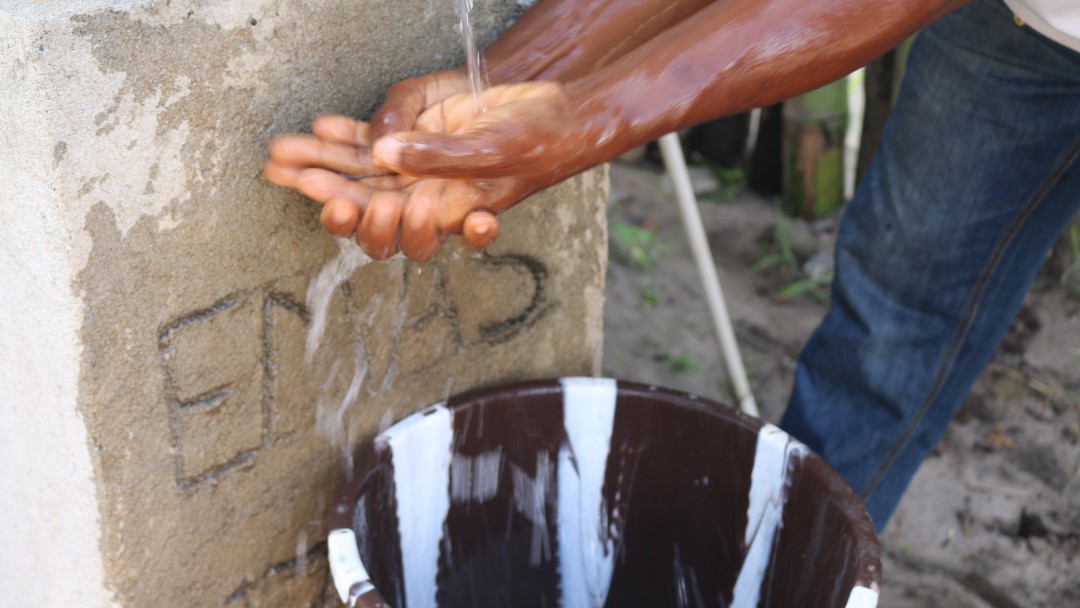News from 2017-07-27 / KfW Development Bank
Steady recovery in the aftermath of Ebola
Close cooperation with non-governmental organisations forms the key to success

For the past twelve years, KfW has been working on behalf of the German Federal Government to support recovery in Liberia following its devastating civil war. Working hand in hand with the non-governmental organisation Welthungerhilfe, it has introduced comprehensive measures with the support of two further non-governmental organisations. Despite setbacks caused by the Ebola epidemic of 2014, close cooperation has enabled the bank to achieve sustainable progress.
The recovery operation in Liberia is typical for the transition from emergency relief to sustainable development. South-eastern Liberia – by far one of the poorest and most remote regions in the country – had reached its lowest ebb after 14 years of civil war. Just two years after the end of the war, KfW arrived in the region along with the non-governmental organisation (NGO) Welthungerhilfe. To begin with, the main focus was to reintegrate former combatants, set up supplies for refugees, provide short-term job opportunities and care for victims of sexual assault, though the programme has since shifted to concentrate on long-term measures. KfW has been financing the programme on behalf of the Federal Ministry for Economic Cooperation and Development since 2005, contributing financing of EUR 55.75 million so far.
Schools, health centres and roads have been built in over 100 villages. In widespread campaigns, the programme promotes hygiene and preventative health care to fight Ebola and other diseases. Furthermore, it is supporting the cultivation of various vegetables in an effort to overcome extensive malnutrition. Since work started, the staple diet of cassava has been joined by chillis, aubergines and okra. Another part of the programme is the provision of vocational training to young people who dropped out of school. They are now finding work as beauticians, bricklayers, electricians and carpenters, giving them their own source of income.
Setbacks as a result of Ebola
At present, the Liberian government's own structures in the south-east of the country are still weak, which is why KfW selected NGOs as its partners. These include the non-governmental organisations Welthungerhilfe and medica mondiale Liberia, which works on behalf of KfW to help women exercise their rights and provide care for victims of sexual and domestic abuse. As part of the programme, the NGO Oxfam-IBIS provides further training for early school leavers.
The outbreak of Ebola in 2014 set the programme back a long way. Transport and the economy were at a standstill due to the ban on travel between individual communities in a bid to contain the epidemic. However, Welthungerhilfe remained in the area throughout, launching awareness campaigns and issuing hygiene products. Since the outbreak, a part of the programme has been dedicated to the prevention of Ebola. For instance, health centres have been renovated and an isolation station has been set up in Fishtown, the largest community in the region. The individual communities in the area were taught about preventive hygiene measures in schools and at markets.
Two partners – two forms of leverage
KfW and Welthungerhilfe draw on their individual strengths in Liberia. Welthungerhilfe has been active in the country for a long time and has a very strong presence. It can look back over many years of experience, even in the south-east of the country. It has also built up a high profile and respect among local partners.
KfW, on the other hand, has access to top-ranking state officials and is known in the country as a familiar, reliable partner. It can apply its expertise in planning, implementing and monitoring major infrastructure projects. The Liberian authorities play an important role in the planning process. They define standards that must be observed, for example, when constructing new health stations. They help to develop management plans for the operation and maintenance of new infrastructure. Each county in Liberia employs a Liberian engineer, though they tend to lack the necessary resources. The programme therefore supports them in their role by providing them with e.g. a moped for work.
Wherever possible, the individual measures financed by the programme are implemented in close cooperation with local authorities. Though this may take longer in certain circumstances, it also helps local state organisations to expand their capacity. Once a local authority has gained experience in the selection and implementation of roadwork projects, they will be able to look after similar projects on their own in future. And this is the ultimate goal – to handover responsibility to Liberian structures. Until this point is reached, cooperation with NGOs will fill the gap instead.

Share page
To share the content of this page with your network, click on one of the icons below.
Note on data protection: When you share content, your personal data is transferred to the selected network.
Data protection
Alternatively, you can also copy the short link: https://www.kfw-entwicklungsbank.de/s/enzBWrMC.BoPA
Copy link Link copied